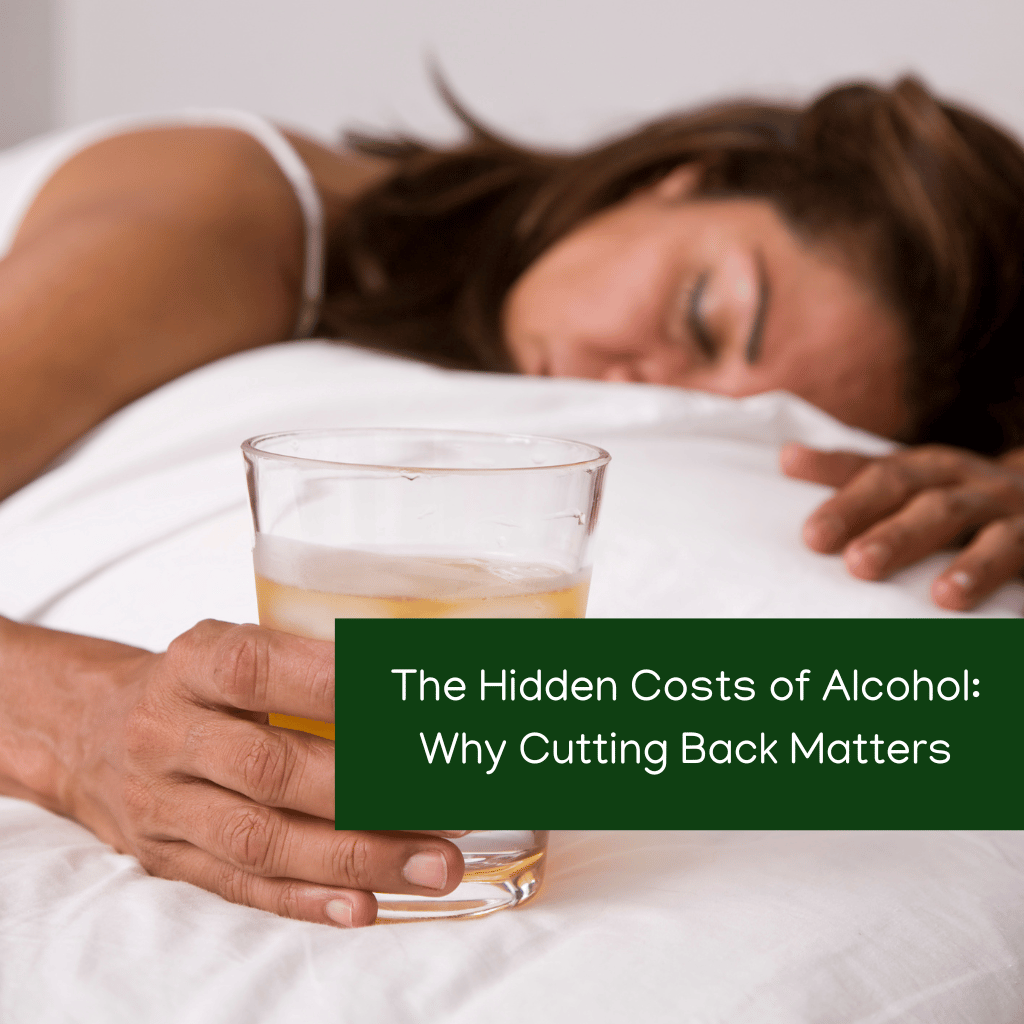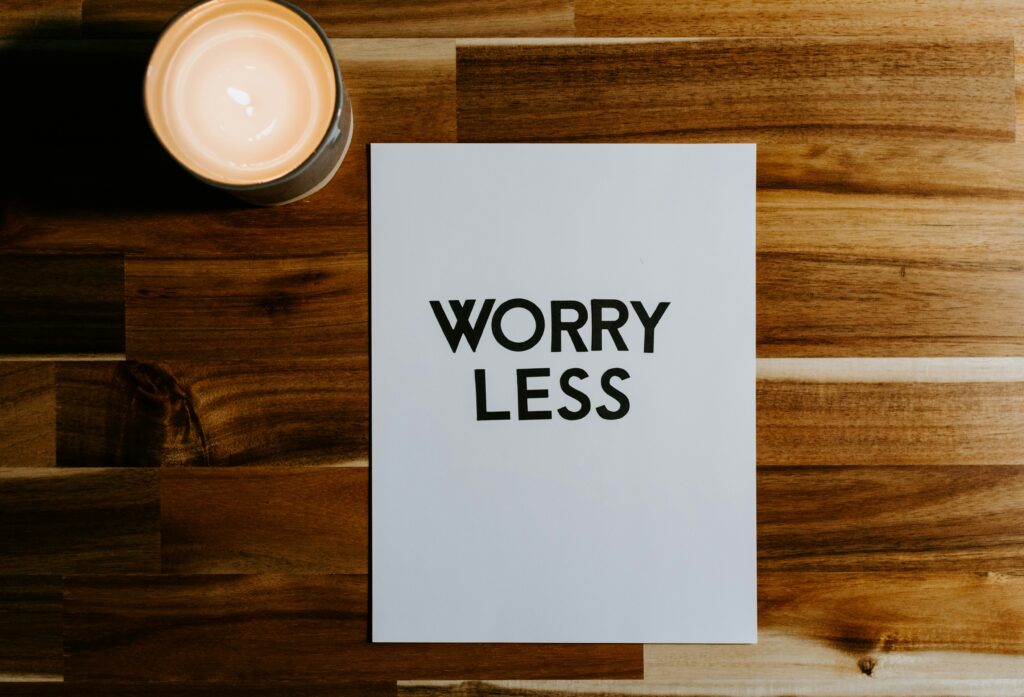The Hidden Hormone Disruptors in Your Everyday Scents

Following up on our recent post about hormones and how they influence our overall well being, today we’re diving into something that often flies under the radar: hormone disruptors hiding in our favourite scents. Wait—Scents Can Disrupt Hormones? Yes, they can. Many of the lovely-smelling products we use daily—like perfumes, air fresheners, laundry powders, body scrubs, candles, and even “natural” shampoos—contain synthetic fragrances and chemicals that can disrupt our body’s natural hormonal balance. These ingredients are often part of a category known as endocrine disruptors. That means they interfere with the normal function of our hormonal system, mimicking or blocking hormones like estrogen and testosterone. Common Sources of Hormone-Disrupting Scents Here are a few everyday items that may contain these hidden disruptors: Perfumes and colognes Laundry detergents and fabric softeners Cleaning sprays and surface wipes Shampoos and conditioners Body lotions and scrubs Candles and room sprays Personal care creams (even baby lotions!) Look for ingredients like: “Fragrance” or “Parfum” (a catch-all term for hundreds of undisclosed chemicals) Phthalates (used to make scents last longer) Synthetic musks and preservatives like parabens or triclosan Why It Matters Hormonal imbalances can contribute to a wide range of health issues—from irregular periods and fatigue to mood swings, fertility issues, and even hormone-related cancers. For those recovering from illness, undergoing treatment (such as cancer care), or just aiming for optimal health, reducing exposure to hormone disruptors is a powerful act of self-care. What You Can Do Go Fragrance-Free or Choose Truly Natural Scents Look for products labeled “fragrance-free” (not just “unscented”) Choose items scented with pure essential oils (in moderation) Support brands that are transparent with their ingredients Switch to Low-Tox Alternatives Try making your own cleaning sprays with vinegar and lemon Use soap nuts or natural laundry powder Use plant-based, low-tox body and hair care Rethink Candles and Air Fresheners Opt for beeswax or soy candles scented with essential oils Use fresh flowers or herbs (like lavender or rosemary) for natural fragrance A Gentle Reminder You don’t need to throw out everything at once. Begin by replacing one or two products as they run out. Awareness is the first step. Small, intentional swaps can make a big difference to your health over time.
The Hidden Costs of Alcohol: Why Cutting Back Matters

Alcohol is deeply ingrained in many cultures, often seen as a way to celebrate, socialize, and unwind. However, recent research continues to highlight the health risks associated with alcohol consumption, even at moderate levels. Understanding these risks and taking steps to reduce alcohol intake can lead to significant improvements in overall health and well-being. While occasional drinking might seem harmless, scientific studies have linked alcohol consumption to numerous health issues. Even moderate drinking—one drink per day for women and two for men—has been associated with increased risks of liver disease, cancer, and cardiovascular problems. A report from the Interagency Coordinating Committee for the Prevention of Underage Drinking (ICCPUD) emphasized that the risk of dying from alcohol-related causes starts even at low levels of consumption and rises with higher intake. One of the most concerning findings is the connection between alcohol and cancer. Alcohol has been identified as a contributing factor to several types of cancer, including liver, breast, and esophageal cancer. Research indicates that women are particularly vulnerable, with even low levels of alcohol consumption increasing their risk of developing breast cancer. Additionally, alcohol contributes to liver cirrhosis, high blood pressure, and an increased risk of stroke. Contrary to previous beliefs that some alcohol consumption might be beneficial for heart health, newer studies suggest that any potential benefits are outweighed by the associated risks. Beyond physical health, alcohol consumption can take a toll on mental well-being and social relationships. Heavy drinking has been linked to depression, anxiety, and impaired cognitive function. It can also lead to risky behaviors, relationship conflicts, and workplace issues. For younger individuals, alcohol poses an even greater risk. Studies show that excessive drinking in people aged 15-20 significantly increases the likelihood of accidents, injuries, and premature death. Binge drinking—defined as consuming four or more drinks for women and five or more for men in a single sitting—further amplifies these dangers. Some Steps to consider to Reduce Alcohol Consumption If you’re looking to cut back on alcohol, consider these strategies: Set Goals – Define how much you want to reduce your alcohol intake and create a plan to stick to it. Find Alternatives – Swap alcoholic beverages for non-alcoholic options like flavored sparkling water, herbal teas, or alcohol-free mocktails. Avoid Triggers – Identify situations where you tend to drink and find healthier coping mechanisms, such as exercise, meditation, or engaging in hobbies. Practice Mindful Drinking – If you do drink, be conscious of your consumption and avoid excessive intake. Seek Support – Talk to friends, family, or support groups if you find it challenging to cut back. Reducing alcohol consumption can significantly improve both physical and mental health. While moderate drinking has been socially normalized, the latest research suggests that even small amounts can pose serious risks. By making mindful choices and prioritizing well-being, you can take control of your health and lead a more balanced, fulfilling life. If you or someone you know is struggling with alcohol dependence, seeking professional guidance can be a valuable step towards a healthier future.
Anxiety relief

Anxiety is something that affects most of us. How to understand it, why it affects us and overcoming it. In our fast-paced and demanding world, anxiety has become a prevalent challenge affecting many individuals. This is why I created the “Anxiety Detox” workshop aiming to provide you with valuable insights into the nature of anxiety, why it has become so pervasive in contemporary society, and practical strategies to navigate and alleviate its impact. Understanding Anxiety: Anxiety is a natural response to stress, but in today’s world, its prevalence has soared, affecting people from all walks of life. The incessant demands, uncertainties, and constant connectivity have contributed to heightened stress levels, manifesting as anxiety. It can take various forms, such as generalized anxiety, social anxiety, or specific phobias, and its impact can be both physical and mental. Why Anxiety Affects Us: The modern lifestyle often exposes us to chronic stressors, leading to an overactive stress response system. The constant pressure to meet expectations, coupled with the fear of the unknown, can trigger anxiety. Understanding the roots of anxiety is crucial in developing effective coping mechanisms and reclaiming control over our emotional well-being. Overcoming Anxiety Levels and Triggers: This online workshop offers practical tools and techniques to manage anxiety at different levels and identify triggers in your daily life. We will explore mindfulness practices, cognitive-behavioral strategies, and lifestyle adjustments that empower you to break free from the grip of anxiety. By fostering a deeper understanding of your thoughts and emotions, you can build resilience and create a more balanced and fulfilling life. Join us in this journey towards anxiety relief, where you will gain valuable insights, connect with like-minded individuals, and acquire practical skills to navigate life’s challenges with greater calm and resilience. Together, let’s embark on a path of self-discovery and empowerment. Check on my EVENTS page to book your spot for the next online workshop on how to release and detox from anxiety. With kindness and in peace, Sol Certified International Wellness Coach Integrative Nutrition Health Coach Accredited HCANZA-AC Certified Yoga Teacher Published Author “You are this instant” @solpinedawellnesswww.solpinedawellness.com Ph: +64 27 274 8562
I am constantly dieting and I don’t lose weight

Taking care of your nutrition does not mean you need to be on a diet all the time Trust me, I know what it is to be constantly dieting. To be searching for the latest most magical and miraculous diet. To be so self conscious about what you’re eating, that you are not even enjoying a dinner out with friends. To starve your body and yourself just for the sake of oozing one kg and feeling good when you step on the scales. Being constantly on a diet can be very harmful, both for your body and for your mind. I know what it’s like because I have been there myself. Obsessive thinking, over thinking before or after meals, having to choose other clothes because you are not comfortable wearing that for a special occasion or even thinking how am I going to look after dinner with all that food inside my stomach. All of those are signs of obsessing and overthinking about food in a harmful, unhealthy way. The thing is, that all that overthinking and “weight” you carry on your mind – is also affecting your body. What weighs up here (brain), weights down there (on your body and belly) as well. I want to share some facts with you, so that your brain starts to believe that dieting constantly is not the answer. The Downside of Constant Dieting: Metabolic Adaptation: Constantly restricting calories signals the body to adapt to the lower energy intake. The body acts as if there is going to be a hard time ahead and goes into survival.Over time, the metabolism may slow down as a survival mechanism, making it harder to lose weight. This metabolic adaptation can result in a plateau where weight loss becomes increasingly challenging, despite continued efforts to reduce calorie intake. Nutrient Deficiency: Many diets focus on limiting certain food groups, which can lead to nutrient deficiencies over time. Essential vitamins and minerals are crucial for overall health, and lacking them can have adverse effects on various bodily functions. It’s important to remember that there is no one diet that fits us all. Nutrient deficiencies can result in fatigue, weakened immunity, and other health issues, making it harder to maintain an active and balanced lifestyle. Psychological Toll: Constantly adhering to restrictive eating patterns can take a toll on mental health. The pressure to stick to a rigid diet can lead to feelings of guilt, anxiety, and even a negative relationship with food. Mental and emotional stress can contribute to emotional eating, binge eating episodes, or a cycle of restriction and overindulgence, further complicating weight management. Loss of Muscle Mass: Severely restricting calories, especially without adequate protein intake, can lead to the loss of muscle mass. Reduced muscle mass can lower the body’s overall calorie-burning capacity, making it harder to maintain weight loss in the long run. Additionally, muscle loss can affect physical strength and resilience. Potential for Eating Disorders: Constant dieting, especially when taken to extremes, can contribute to the development of eating disorders such as anorexia or bulimia. These disorders not only pose serious health risks but also perpetuate an unhealthy relationship with food and body image, diverting attention from the original goal of achieving a balanced and sustainable lifestyle. I’ve seen in many clients how their metabolism is not working properly after constantly dieting while they are filled with guilt. I’ve seen the stress in their eyes, and how they are losing muscle mass. I’ve identified the potential eating disorder if they continue that way. If this feels like you, if any of these signs resonate – PLEASE I urge you to stop, pause – observe yourself. Are you focusing on health, or are you actually repeating unhealthy patterns over and over again? Are you trying all these things on your own, or are you actually seeking professional help? I won’t lie or sell you a magic pill or plan that will change all these years of obsessive and compulsive thinking and dieting. I am going to offer you a sustainable, natural, research and patient way to come back to HEALTH. You deserve to feel free and happy in your own skin. OWN IT! Read my following post for some hacks on how to focus on balance instead of dieting. With love and in health, Xoxo Sol Certified International Wellness Coach Integrative Nutrition Health Coach Accredited HCANZA-AC Certified Yoga Teacher @solpinedawellness www.solpinedawellness.com Ph: +64 27 274 8562
Alcohol is not good for me, how can I stop binge drinking this year?

Alcohol is not good for me, how can I stop binge drinking this year? Tips for reducing or stopping alcohol consumption I get it, it’s hard. In a world that often glorifies alcohol consumption, where all social interactions and celebrations are around alcohol, acknowledging that it may not be good for you is a commendable first step towards a healthier lifestyle, yet hard. Binge drinking can have serious consequences on both physical and mental health, making it crucial to address and overcome. In this comprehensive guide, we will explore effective strategies to curb binge drinking in the coming year. I am not necessarily saying stop all your drinking if that doesn’t feel right for you now, I am just suggesting ways to crowd out something that might be detrimental for your health, that you know does not serve you and you’re finding it hard to. Let’s begin: Understanding the Impact of Binge Drinking: It’s essential to begin by examining the harmful effects of binge drinking on health. From liver damage to increased risk of accidents and mental health issues, awareness is key to motivating change. Setting Realistic and Achievable Goals: One of the keys to overcoming any habit is setting realistic and achievable goals. Whether it’s reducing alcohol intake gradually or committing to alcohol-free days, small steps can lead to significant changes. Seeking Professional Help: Recognizing the need for professional assistance is a sign of strength. This section will highlight the various avenues of support, including therapy, counseling, and support groups, to help individuals struggling with binge drinking. Building a Support System: Surrounding oneself with a supportive network of friends and family can significantly impact the journey to sobriety. This section will delve into the importance of a strong support system and offer tips on how to cultivate it. Exploring Healthy Alternatives: Binge drinking often arises from the desire for social interaction or stress relief. Discovering healthier alternatives, such as engaging in physical activities, pursuing hobbies, or practicing mindfulness, can redirect focus away from alcohol. Educational Resources on Alcohol Abuse: Knowledge is a powerful tool in the fight against binge drinking. This section will provide links to reputable resources and educational materials, empowering individuals to make informed decisions about their alcohol consumption. Addressing binge drinking is a significant step towards a healthier and more fulfilling life. By combining effective strategies to ove rcome alcohol abuse, this guide aims to reach individuals seeking support and information. Remember, the journey to sobriety is unique for each person, and seeking help is a commendable decision. Let’s make this new year a transformative one on the path to a healthier, alcohol-free lifestyle. Please share in the comments what have you tried in your journey to reduce or stop alcohol consumption th at has worked. I am always here to help, please reach out if you feel professional guidance may be what you need. Yours in health. Sol Certified International Wellness Coach Integrative Nutrition Health Coach Accredited HCANZA-AC Certified Yoga Teacher @solpinedawellness www.solpinedawellness.com Ph: +64 27 274 8562
